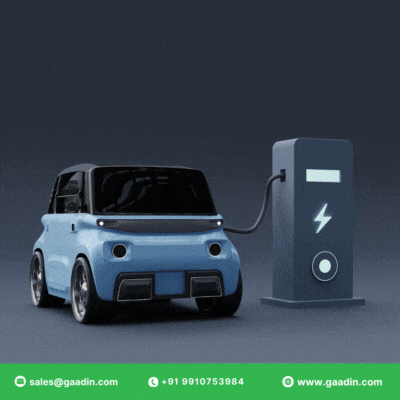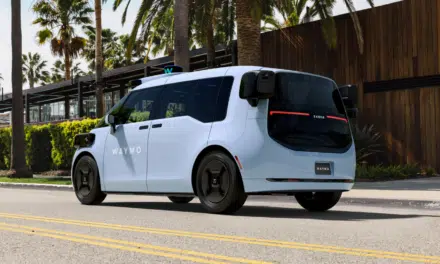Tata Group has announced that it will invest over £4 billion in a new UK gigafactory which will create thousands of jobs.
The UK has been chosen as the home of Tata Group’s first gigafactory outside India, in a move set to create thousands of jobs and bring a huge boost to the UK’s automotive sector.
Tata Group confirmed the UK had secured one of the largest ever investments in the UK auto industry today (19 July). The gigafactory will secure UK-produced batteries for another Tata Sons investment, Jaguar Land Rover, as well as other manufacturers in the UK and Europe.
The new gigafactory, at 40GWh, will be one of the largest in Europe. It will create up to 4,000 highly skilled jobs, as well as thousands of further jobs in the wider supply chain for battery materials and critical raw minerals, helping grow the economy and take forward the UK’s commitment to net zero.
Advertisement
Prime Minister Rishi Sunak said:
“Tata Group’s multi-billion-pound investment in a new battery factory in the UK is testament to the strength of our car manufacturing industry and its skilled workers.
With the global transition to zero emission vehicles well underway, this will help grow our economy by driving forward our lead in battery technology whilst creating as many as 4,000 jobs, and thousands more in the supply chain.
We can be incredibly proud that Britain has been chosen as home to Tata Group’s first gigafactory outside India, securing our place as one of the most attractive places to build electric vehicles.”
Mr N Chandrasekaran, Chairman, Tata Sons, said:
“The Tata Group is deeply committed to a sustainable future across our business.
Today, I am delighted to announce the Tata Group will be setting up one of Europe’s largest battery cell manufacturing facilities in the UK. Our multi-billion-pound investment will bring state-of-the-art technology to the country, helping to power the automotive sector’s transition to electric mobility, anchored by our own business, JLR.
With this strategic investment, the Tata Group further strengthens its commitment to the UK, alongside our many companies operating here across technology, consumer, hospitality, steel, chemicals, and automotive.
Advertisement
I also want to thank His Majesty’s Government, which has worked so closely with us to enable this investment.”
The investment of over £4 billion represents a historic moment for the UK’s growing electric vehicles industry. The new gigafactory will supply JLR’s future battery electric models including the Range Rover, Defender, Discovery and Jaguar brands, with the potential to also supply other car manufacturers. Production at the new gigafactory is due to start in 2026.
This investment will be crucial to boosting the UK’s battery manufacturing capacity needed to support the electric vehicle industry in the long term. With an initial output of 40GWh it will also provide almost half of the battery production that the Faraday Institution estimates the UK will need by 2030.
Business and Trade Secretary Kemi Badenoch said:
“Today’s multibillion-pound investment demonstrates that this Government has got the right plan when it comes to the automotive sector.
We are backing the UK car industry to help grow our economy as we transition to electric vehicles, and this latest investment will secure thousands of highly-skilled jobs across the country.”
Tata’s decision is a major vote of confidence in UK automotive. The Government is committed to making the UK one of the best places in the world for automotive investment, as evidenced by the Automotive Transformation Fund, the British Industry Supercharger, and the strong programme of support for research and development.
Chancellor of the Exchequer Jeremy Hunt said:
Advertisement
“This is a huge vote of confidence in the UK and one that will drive growth in our economy, creating thousands of jobs and powering our transition to electric cars.
Tata Group’s gigafactory builds on the strength of our manufacturing industry and shows we’re on the right track, backing the sectors that will underpin our future prosperity for decades to come.”
Energy Security Secretary Grant Shapps said:
“Today’s announcement from Tata is excellent news. We have been working tirelessly with the company, and across government, to make the case for why the UK is the best place for them to invest.
This new gigafactory puts us firmly in the fast lane to becoming the capital of Europe’s electric car market, and makes crystal clear how they see the UK as the place to be for their future growth.
With thousands of jobs on site and in the supply chain, this new factory will be the cornerstone of our automotive industry, backing manufacturers to develop and expand, and customers to make the switch from petrol and diesel.”
- Details of government support to Tata Sons will be published in due course as part of our regular transparency data.
- The Automotive Transformation Fund (ATF) supports the development of an internationally competitive electric vehicle supply chain in the UK. Investment through the ATF will develop a high-value end-to-end electrified automotive supply chain in the UK. This includes unlocking private investment in gigafactories, battery material supply chains, motors, power electronics, and fuel cell systems. The ATF is being delivered by the Department for Business and Trade in partnership with the Advanced Propulsion Centre.
- The Advanced Propulsion Centre (APC) was launched in 2013 by HMG and the Automotive Council to unlock private investment in new supply chains for low carbon vehicles. APC late-stage collaborative R&D competitions are an important part of the Government’s support for the UK automotive sectors transition to zero emission vehicles. Government and industry have jointly committed around £1.4 billion through the APC competitions to accelerate the development and commercialisation of strategically important emerging vehicle technologies strengthening the UK’s competitive edge internationally.
- British Industry Supercharger: announced in February 2023, over 300 businesses across the UK will benefit from the British Industry Supercharger, which offers targeted measures to ensure the energy costs for key UK industries are in line with other major economies around the world – levelling the playing field for British companies across Europe. Battery manufacturers are eligible for this support, as are other automotive supply chain sectors such as steel, chemicals, aluminium, rubber, glass and accumulators.
- For more information on Faraday Institution battery estimates, please see the Faraday Institution website: https://www.faraday.ac.uk/ev-economics-study-2022/




















